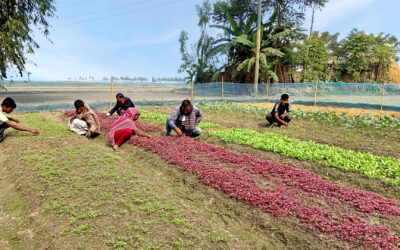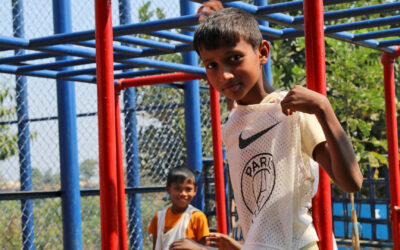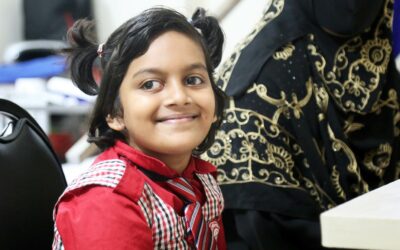Seminar held to highlight the Digital Literacy, Connectivity and Climate Resilience Project (DCCP) by the Malala Fund
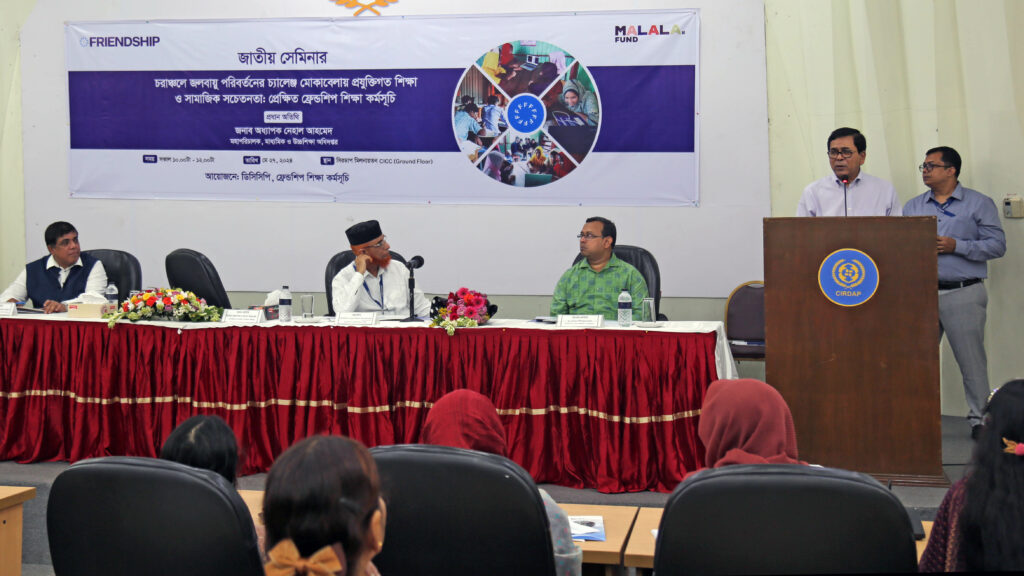
by Friendship News Desk
May 27, 2024
Students are learning strategies to combat climate change and the resulting disasters from their schools under the Friendship education programme. They are subsequently disseminating this knowledge within their families and communities. The extent of damage caused by natural disasters in the Jamuna-Brahmaputra char areas has been significantly reduced with the support of the Malala Fund, as shared by speakers at a seminar held at the CIRDAP auditorium in the capital on Monday, May 27.
The seminar, titled “Technological Education and Social Awareness to Tackle the Challenges of Climate Change in Char Areas: The Perspective of the Friendship Education Programme”, was attended by Professor Nehal Ahmed, director general of the Directorate of Secondary and Higher Education (DHSE) as the chief guest. Special guests included Dr. AQM Shafiul Azam, director of DHSE; and Dr. S.M Hafizur Rahman, professor at the Institute of Education and Research, University of Dhaka.
Professor Nehal Ahmed appreciated Friendship’s effort in providing access to quality education to the children of remote hard-to-reach communities of chars (river islands) and suggested that Friendship may expand its education intervention to other difficult and remote areas like haors, hills, etc. He also lauded the inclusion of a special initiative to enhance Friendship secondary students’ technological knowledge and raise social awareness to address the challenges of climate change in char areas. Dr. AQM Shafiul Azam acknowledged Friendship’s initiative of innovative and creative education programme like Inter-School Connectivity Programme (ISCP) connecting international schools to prepare its students as global citizens. Prof. Hafizur Rahman shared his experiences of visiting Friendship schools several times earlier and acknowledged that Friendship has been able to provide quality education at chars against many odds and challenges. During the discussion Friendship education model and best practices were discussed, and participants especially from DHSE were keen to know more about it to explore the possibilities of adopting those in the government’s new curriculum, especially for remote and difficult environments.
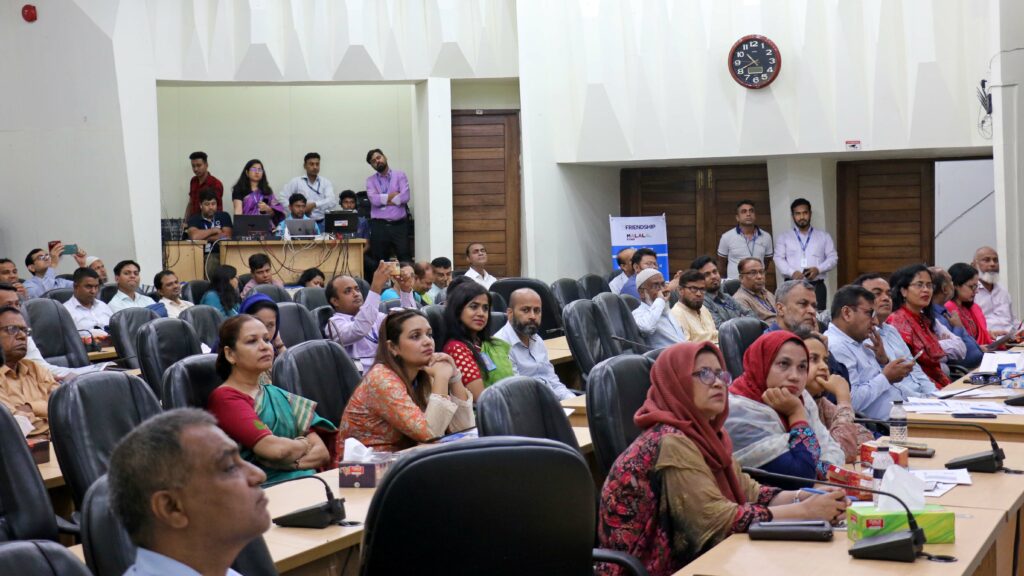
Brigadier General (Retd.) Ilyas Iftekhar Rasul, senior director and head of Friendship Education, highlighted the success of the Friendship Education programme in combating climate change. He stated that for over two decades, Friendship has been conducting primary, secondary, and adult education programmes in the char areas of the Jamuna-Brahmaputra in northern Bangladesh. Over 6,000 students are studying in the 44 primary, 16 secondary, and 49 adult education centres operated by Friendship. In addition to academic education, these schools, with the support of the Malala Fund, teach climate change mitigation, raise awareness, and train students in strategies to adapt to adverse conditions. For this purpose, the “Digital Literacy, Connectivity and Climate Resilience Project” (DCCP) has been implemented. Reza Ahmed, Assistant Director, Education while addressing questions mentioned that that students from Friendship schools are participating in conferences, seminars, and programmes in various developed countries. As part of this initiative, two girls from Friendship schools attended the European Youth Event (EYE) in France in June 2023 and two others attended the Conference of Parties COP28 in Dubai in December of the same year.
The seminar was attended by Friendship’s Adviser Md. Munir Hossen, Director Ruhul Amin, senior programme manager Md. Nayamat Ullah, education programme specialist Shakhawat Ferdous, other Friendship education staff, top officials of DHSE, a2i, representatives of NGOs and INGOs, and education officers of Gaibandha and Kurigram districts. journalists, and other education stakeholders. Students of all Friendship schools and representatives of international development partners joined the seminar online as well.


